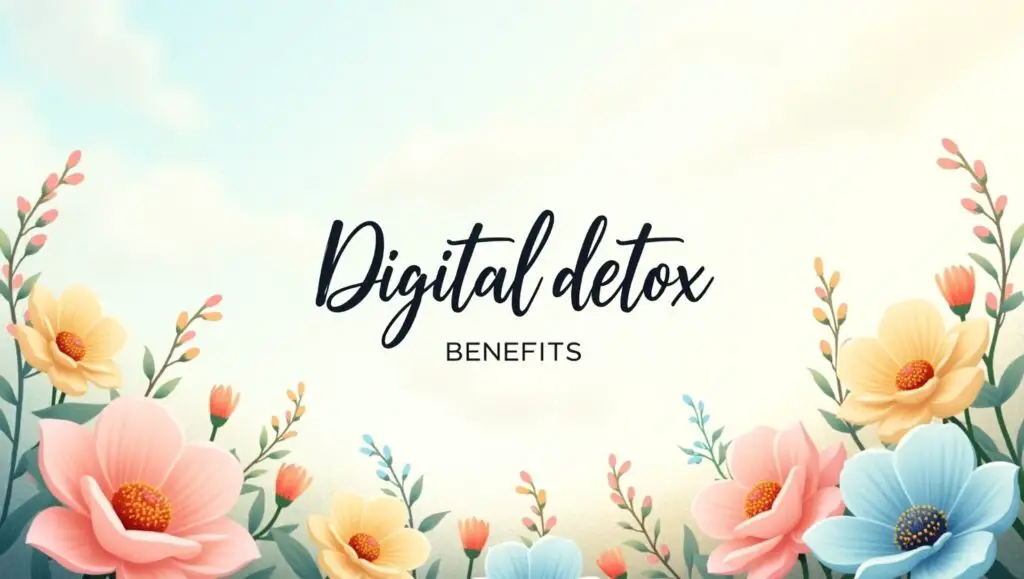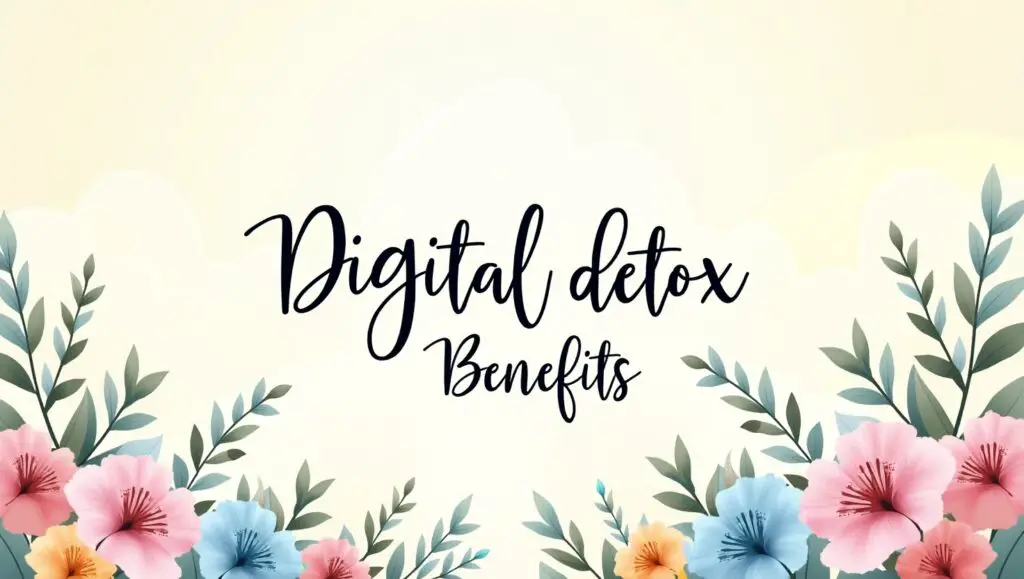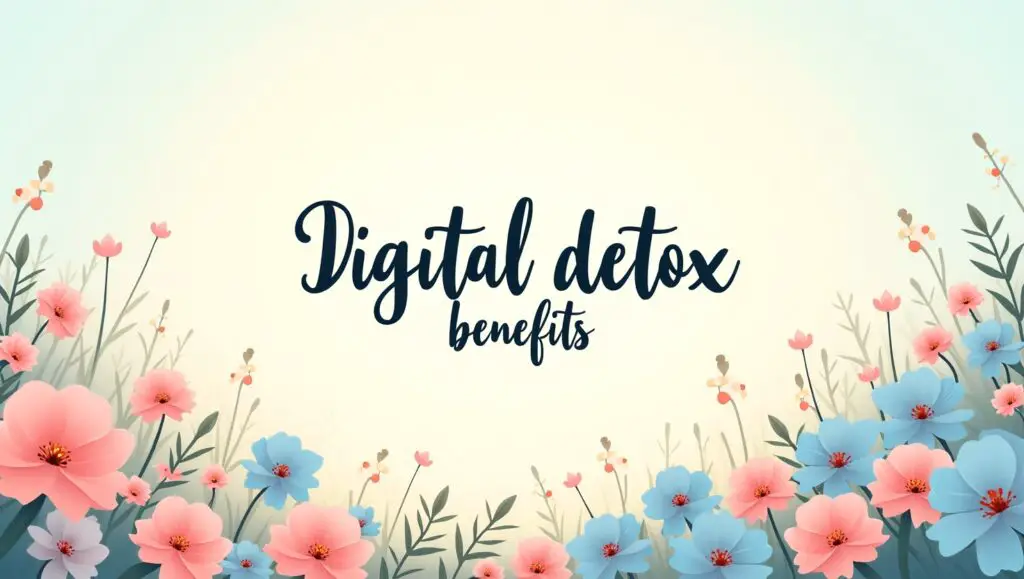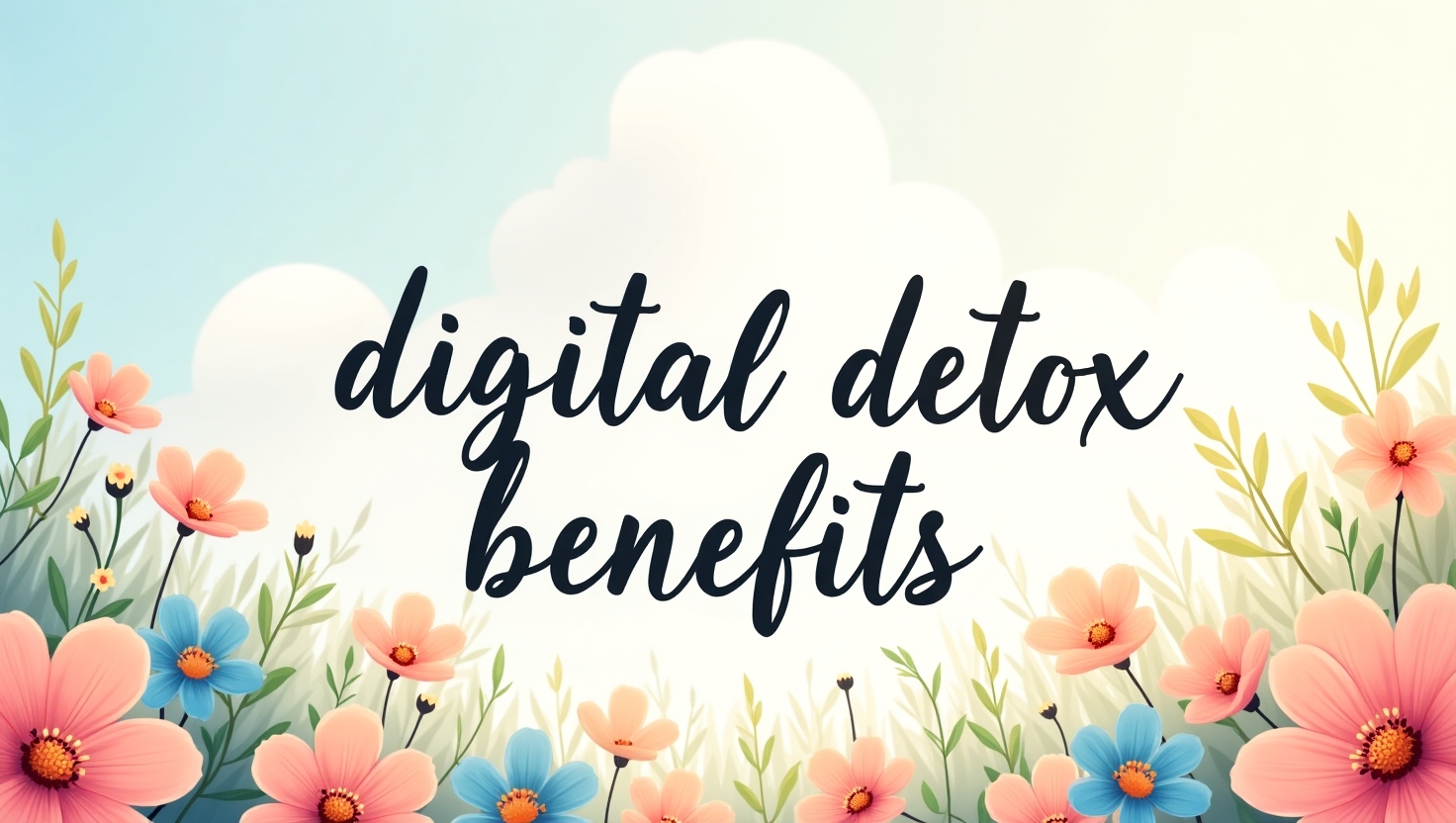In today’s hyperconnected world, it’s easy to feel overwhelmed by the constant pings, notifications, and screen time. From morning to night, most of us are tied to our phones, laptops, or TVs – whether for work, socializing, or leisure. But what happens when we step away from the digital world for a while?
What Is a Digital Detox?
A digital detox refers to a period of time during which a person refrains from using electronic devices such as cellphones, computers, and social media platforms. The purpose is to alleviate stress, increase well-being, and reconnect with the actual world. It doesn’t have to mean being fully off-grid — even little breaks from screens can have big consequences.

Improves Mental Health
One of the biggest benefits of a digital detox is its impact on mental health. Constant exposure to digital media can cause stress, worry, and feelings of inadequacy. Social media, in particular, can create comparison, jealousy, and low self-esteem. By stepping back from screens, your mind gets a chance to relax and reboot.
Studies have indicated that minimizing screen time might lower cortisol levels, the hormone responsible for stress. People who take regular digital breaks report feeling more relaxed, less worried, and more emotionally balanced.
Enhances Sleep Quality
Scrolling through your phone before bed might seem innocent, but it can actually wreak havoc on your sleep cycle. The blue light emitted by screens interferes with melatonin production, the hormone that controls sleep. This can make it harder to fall asleep and lower the quality of rest you get.
By unplugging at least an hour before bed, your brain gets the signal that it’s time to wind down. A digital detox can lead to deeper, more restorative sleep, leaving you refreshed and rejuvenated the next day.
Boosts Productivity and Focus
Constant notifications and multitasking online might break your capacity to concentrate. It’s estimated that it takes the typical person over 20 minutes to refocus after a digital distraction. This can dramatically limit productivity at work or school.
Taking a vacation from digital devices allows your brain to focus deeply on one task at a time. You may find yourself getting more done in less time, with better outcomes. A digital detox can be a terrific approach to reset your attention span and regain your capacity to function without interruptions.
4. Strengthens Real-Life Relationships
While technology has made it easier to stay connected, it’s also created a barrier to authentic, face-to-face communication. Many people find themselves physically present but mentally elsewhere, absorbed in their devices.
During a digital detox, you’re more likely to participate in meaningful conversations, be totally present with your loved ones, and enjoy actual human connection. This can strengthen relationships, increase communication, and develop emotional attachments.

Encourages Mindfulness and Self-Awareness
When you’re not continuously distracted by digital stuff, you become more aware of your thoughts, surroundings, and feelings. A digital detox emphasizes mindfulness – the discipline of being present in the moment without judgment.
This can lead to a clearer awareness of your own behaviors, needs, and emotional triggers. Many people find that unplugging helps them rediscover hobbies, passions, or creative outlets they had forgotten. It’s a chance to reconnect with yourself.
Reduces Eye Strain and Physical Discomfort
Spending hours in front of screens can lead to digital eye strain, often known as computer vision syndrome. Symptoms include dry eyes, impaired vision, and headaches. Poor posture during screen usage might also lead to neck and back pain.
A digital detox gives your eyes and body a much-needed vacation. It fosters better posture, physical movement, and time spent outdoors – all of which contribute to overall wellness.
Helps Set Healthy Boundaries
One of the long-term benefits of a digital detox is learning how to set healthy boundaries with technology. After a detox, you may feel more empowered to limit your screen time, turn off non-essential notifications, or designate “no phone” zones in your home.
Establishing these boundaries will help you maintain a healthier relationship with technology, avoiding burnout and digital fatigue.
Tips for a Successful Digital Detox
- Start small: Begin with a few hours or a weekend without screens.
- Plan ahead: Let friends and coworkers know you’ll be offline.
- Replace screen time with other activities like reading, walking, journaling, or spending time with family.
- Use apps that help measure and limit screen time.
- Reflect on how you feel before, during, and after the detox.

Final Thoughts
In a world that never stops buzzing, beeping, and updating, taking time to unplug is more crucial than ever. A digital detox isn’t about rejecting technology totally – it’s about creating space for balance, clarity, and well-being. Whether it’s for a day, a week, or just a few hours each day, giving yourself a vacation from screens can alter your mental, emotional, and physical health.



